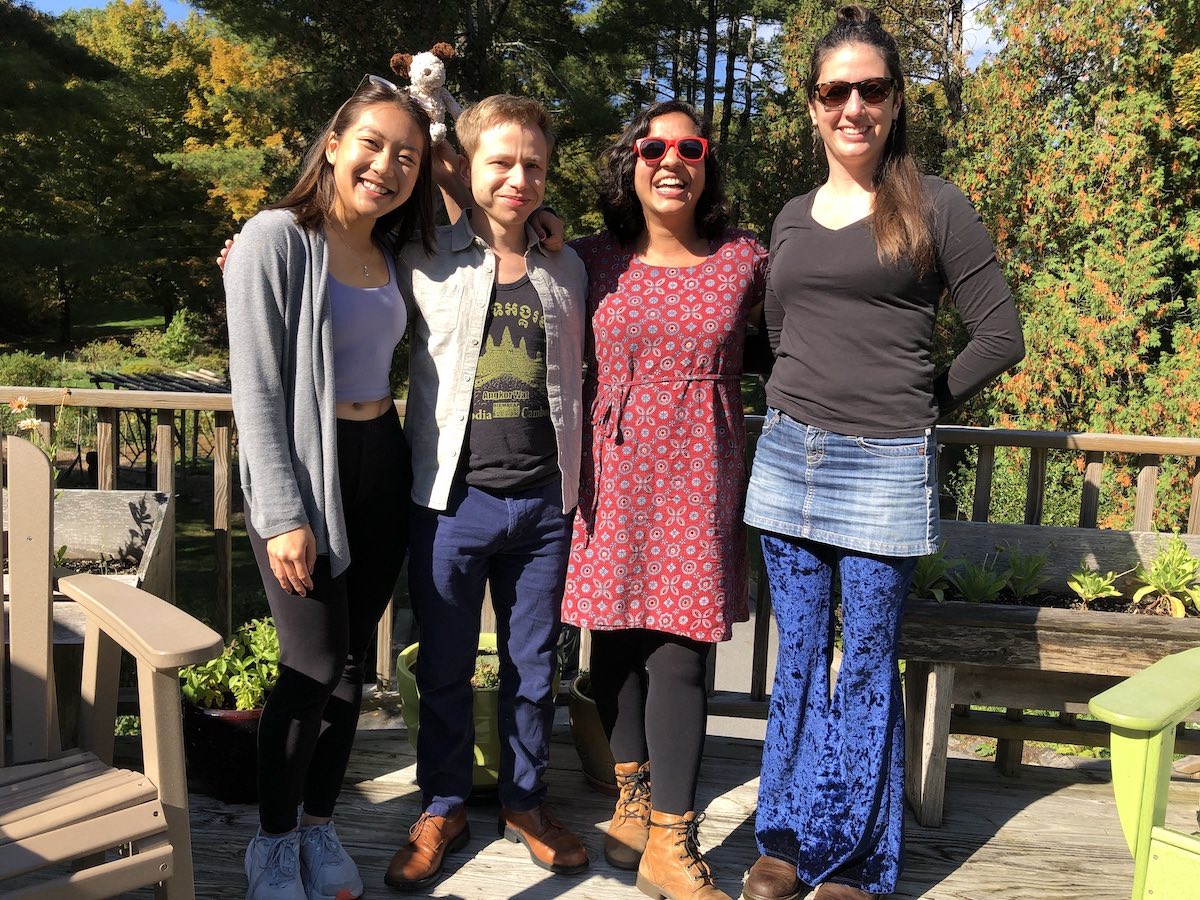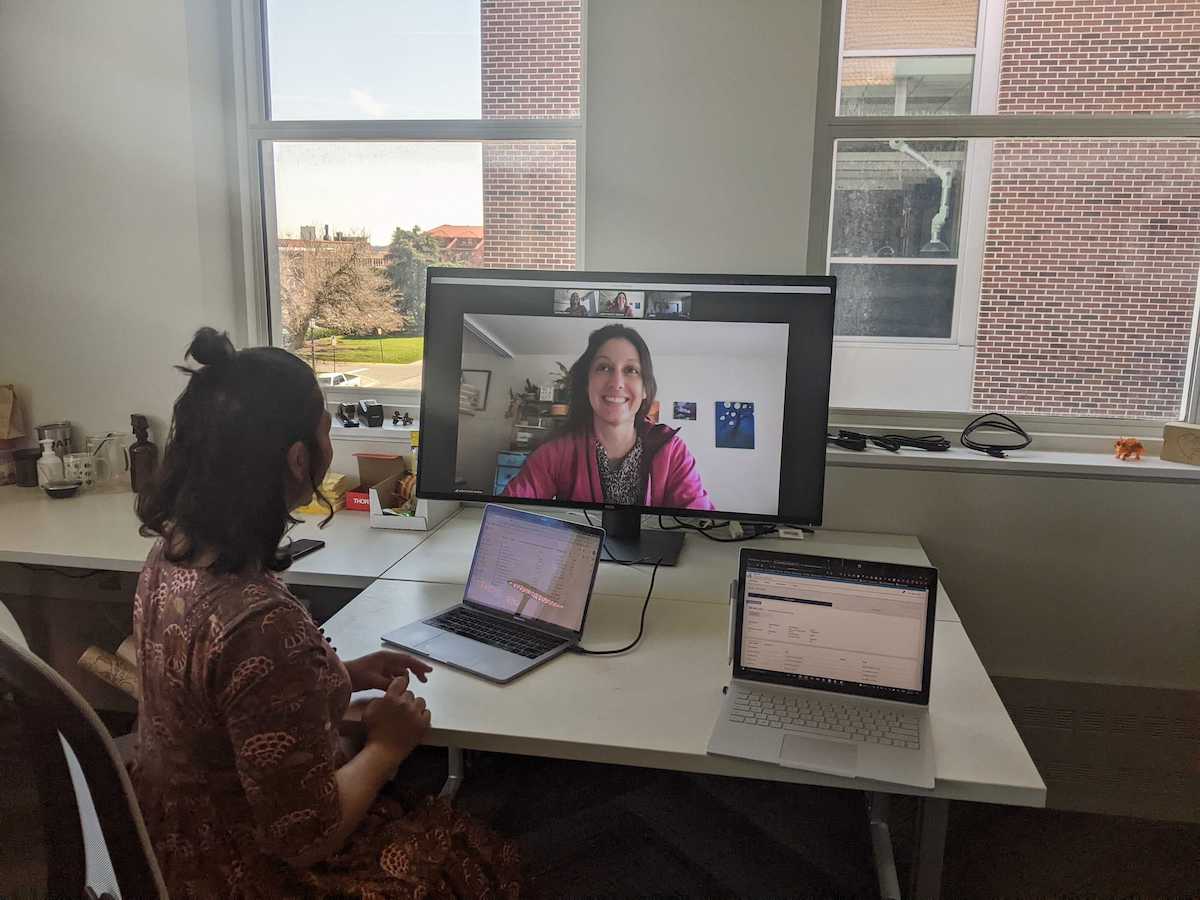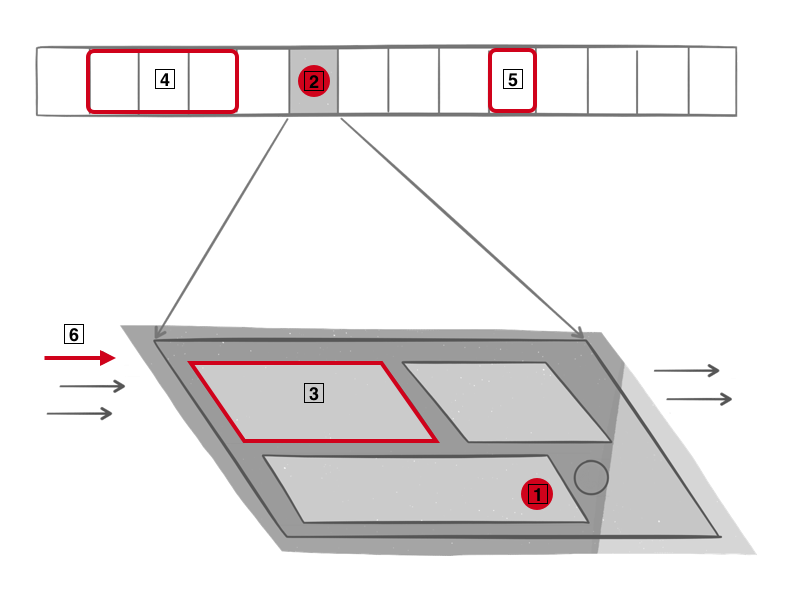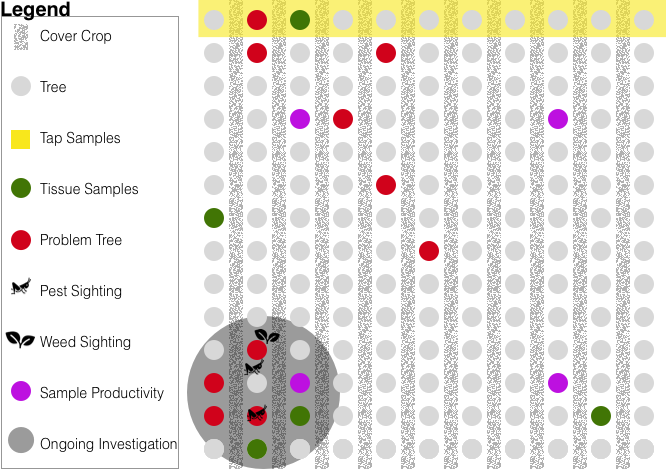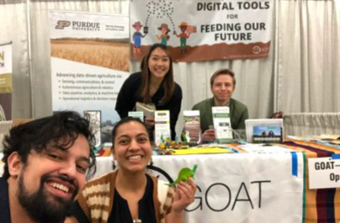Welcome!
At the Agricultural Informatics Lab, we conduct design research and technology development to improve resilience in food and agricultural systems. We build a range of products, from farmer-facing decision support tools and community-oriented local food system toolkits to developer-facing APIs that serve a range of agricultural data. We conduct human-centered design research, translate our findings into usable and useful software prototypes, think critically about the role of technology in local and global food systems, and build real tools for real users.
Each of our projects includes a partnership with domain experts and communities (e.g., agronomy researchers, farmers, food hub coordinators), a mix of undergraduate students, graduate students, senior personnel, and interdisciplinary faculty. All our work is grounded in community needs and desires and results in open-source projects.
To keep up with ongoing research and community engagement, please visit aginformaticslab.org
Contact Us
Our Research
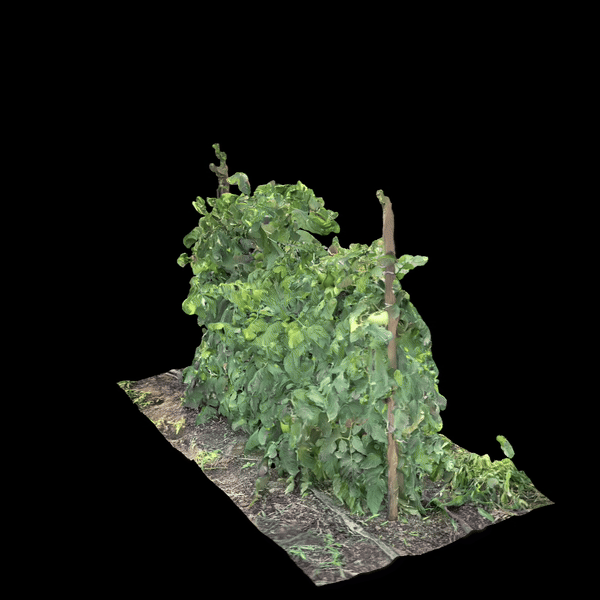 The DDHT project’s goal is to design decision support tools for midwestern fruit and vegetable growers centered around crop planning and nutrient management. These tools utilize crop growth models and deep learning to simulate probable outcomes of crop planning decisions, such as order of succession planting or cultivar selection. Data collection efforts include the use of a historical variety of trial data, biophysical sampling throughout the agricultural season, and the novel use of mobile device LiDAR to nondestructively sample plant structures. Tools developed from this project will assist small and diversified farmers as they plan their agricultural season.
The DDHT project’s goal is to design decision support tools for midwestern fruit and vegetable growers centered around crop planning and nutrient management. These tools utilize crop growth models and deep learning to simulate probable outcomes of crop planning decisions, such as order of succession planting or cultivar selection. Data collection efforts include the use of a historical variety of trial data, biophysical sampling throughout the agricultural season, and the novel use of mobile device LiDAR to nondestructively sample plant structures. Tools developed from this project will assist small and diversified farmers as they plan their agricultural season.
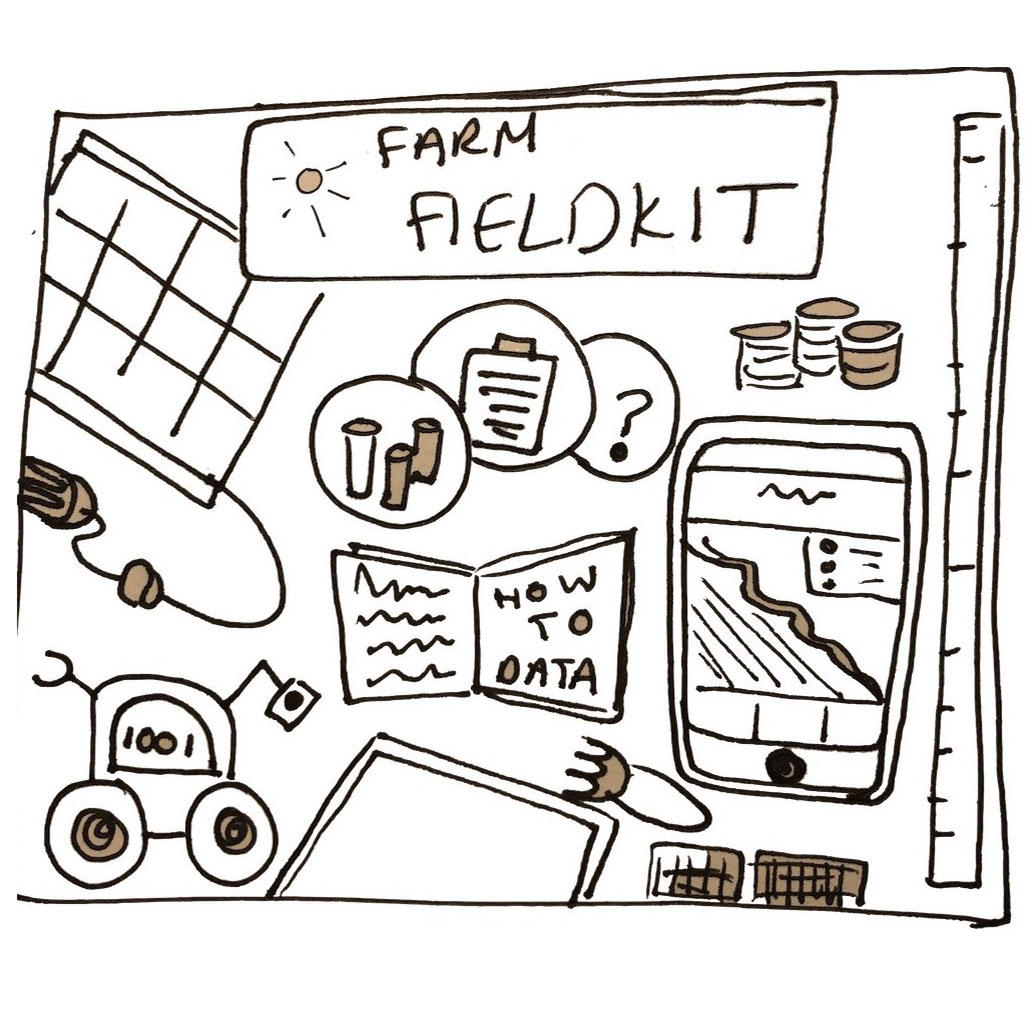 Digitizing farms with technologies like IoT or robots is more accessible than ever before. However, with plenty of options, it is still challenging for the farmer to pick the right one that suits their needs. This project aims to create a guide to support farmer's decisions to adapt smart farm technologies. Farm management software, Iot sensor network, computer vision, and robotics will be deployed on the demonstration testbed at the Purdue student farm. These technologies will be evaluated in a practical operation to measure the additional benefits that farmers will gain from using them.
Digitizing farms with technologies like IoT or robots is more accessible than ever before. However, with plenty of options, it is still challenging for the farmer to pick the right one that suits their needs. This project aims to create a guide to support farmer's decisions to adapt smart farm technologies. Farm management software, Iot sensor network, computer vision, and robotics will be deployed on the demonstration testbed at the Purdue student farm. These technologies will be evaluated in a practical operation to measure the additional benefits that farmers will gain from using them.
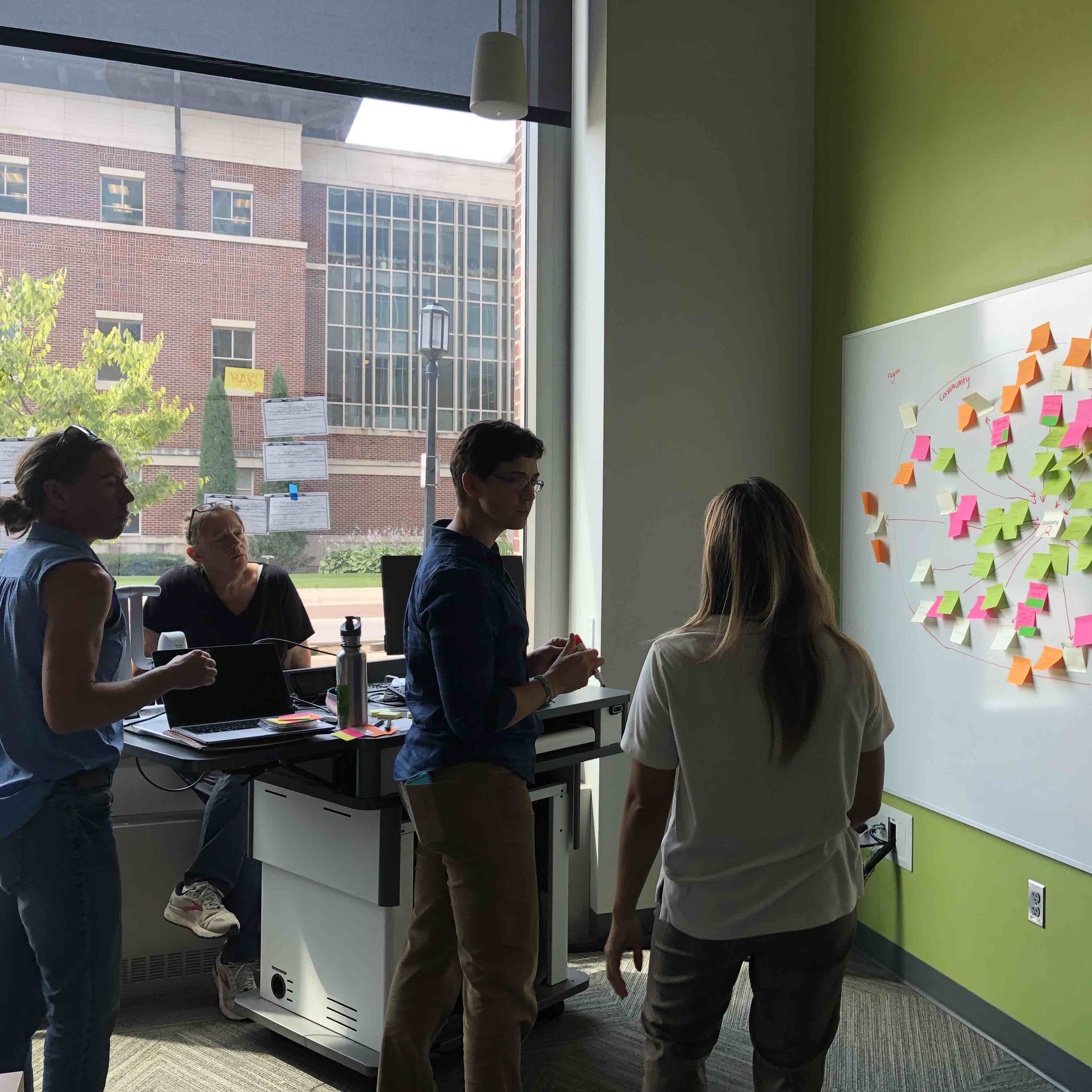 Policy can have wide-reaching effects on our food system and community welfare. This project aims to develop a decision-support tool to enable data-driven food policy-making. This will involve modeling the behavior of a food system and its actors and simulating the impact of disruptions and policy interventions on food security outcomes in a local community. Participatory design methods will be incorporated to build a user-centric tool.
Policy can have wide-reaching effects on our food system and community welfare. This project aims to develop a decision-support tool to enable data-driven food policy-making. This will involve modeling the behavior of a food system and its actors and simulating the impact of disruptions and policy interventions on food security outcomes in a local community. Participatory design methods will be incorporated to build a user-centric tool.
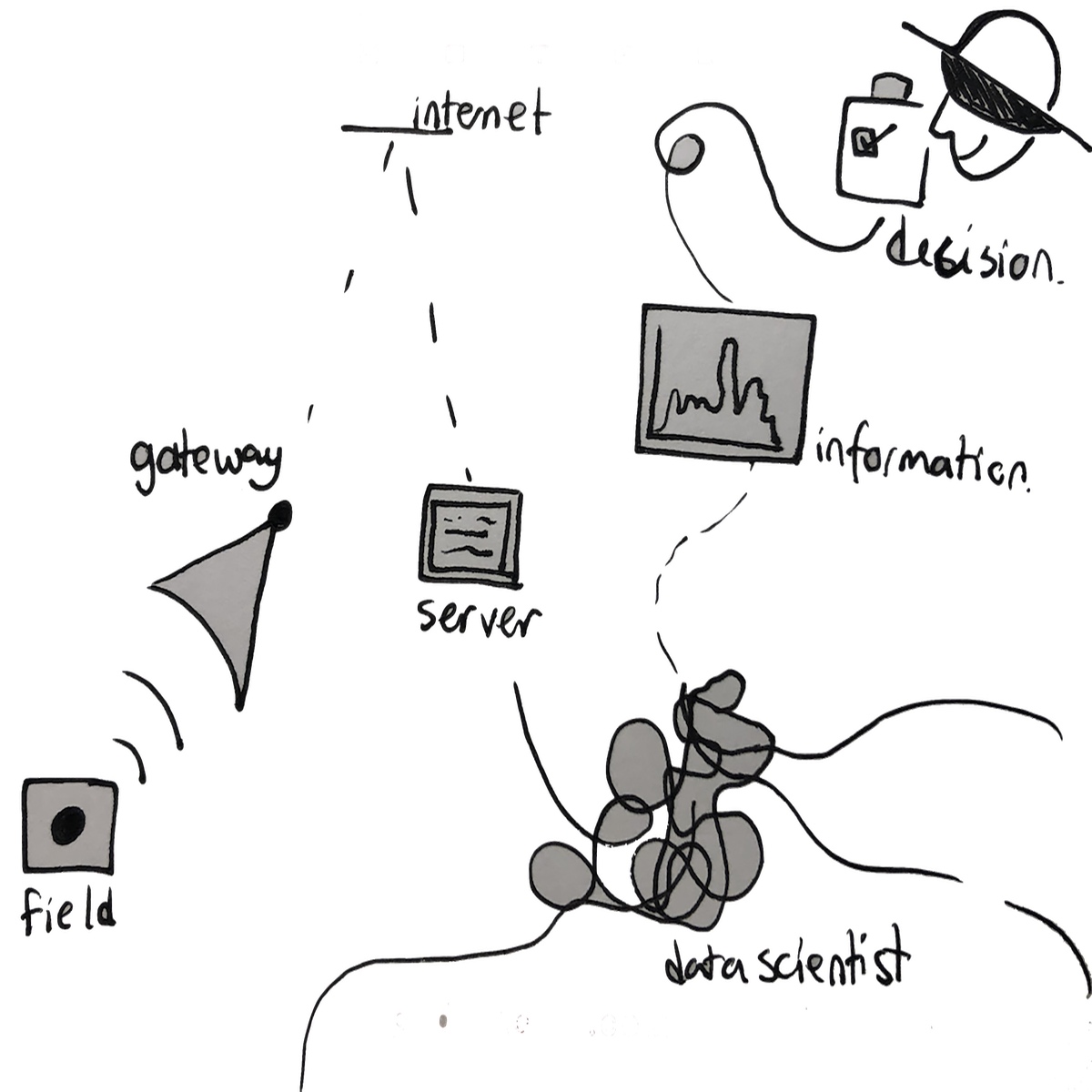 Modeling data flows across USDA NRCS and other agencies to streamline the data management process, and create conservation data standards to improve farmer service and data access. Additionally, this work explores the ag-data pipeline from Farm Information Management Systems (FIMS) to reporting agencies and scientific models.
Modeling data flows across USDA NRCS and other agencies to streamline the data management process, and create conservation data standards to improve farmer service and data access. Additionally, this work explores the ag-data pipeline from Farm Information Management Systems (FIMS) to reporting agencies and scientific models.
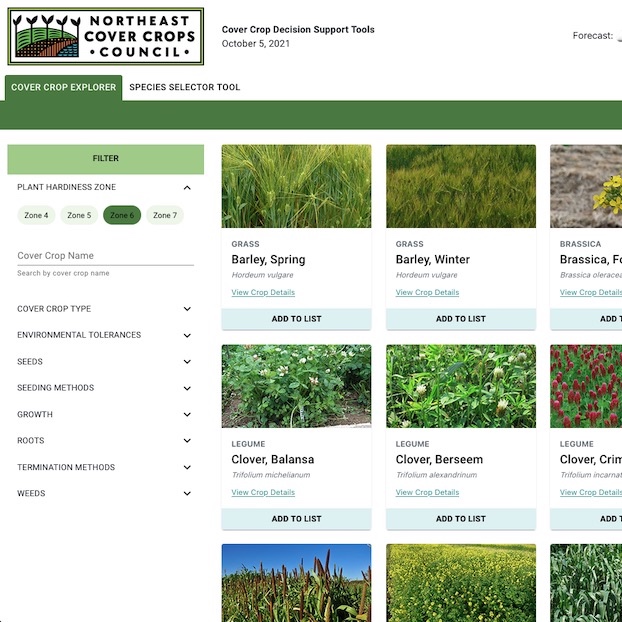 Designing a suite of modular, open source, mobile-friend, offline-compatible software applications to support cover crop management via improved user experiences. Engaging in participatory data stewardship, we set out to overcome data production challenges to provide agricultural data stakeholders with a suite of cover crop datasets through the integration of scientific research data, global earth observation data, expert opinion data, and formalized folk knowledge. This work is a collaboration with four Cover Crop Councils (CCC) across North America.
Designing a suite of modular, open source, mobile-friend, offline-compatible software applications to support cover crop management via improved user experiences. Engaging in participatory data stewardship, we set out to overcome data production challenges to provide agricultural data stakeholders with a suite of cover crop datasets through the integration of scientific research data, global earth observation data, expert opinion data, and formalized folk knowledge. This work is a collaboration with four Cover Crop Councils (CCC) across North America.
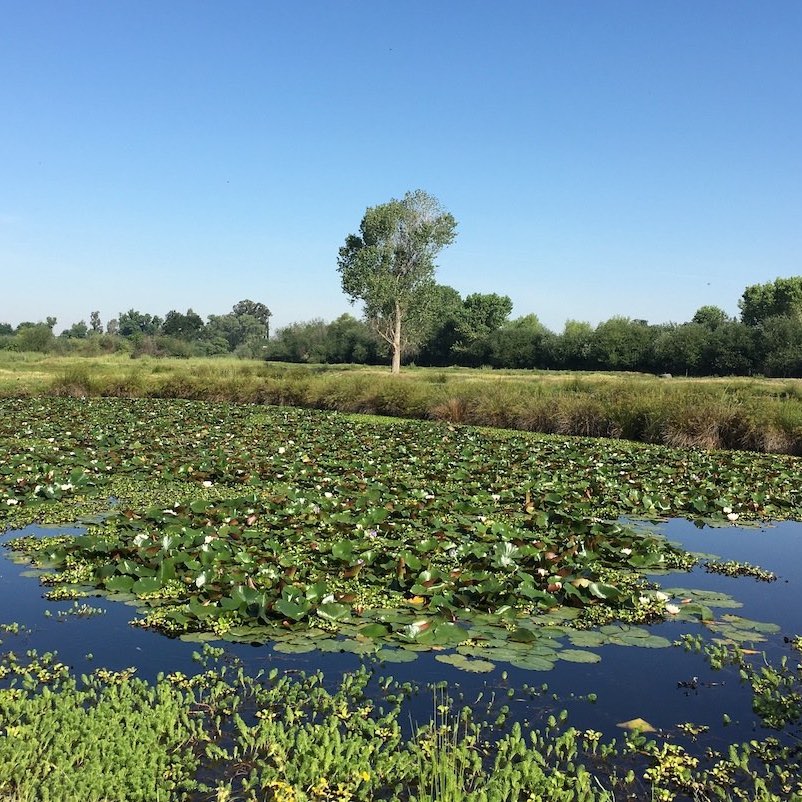 Using participatory design to develop databases and tools for conservation planners and farmers, making the adoption of sustainable farming practices more accessible.
Using participatory design to develop databases and tools for conservation planners and farmers, making the adoption of sustainable farming practices more accessible.
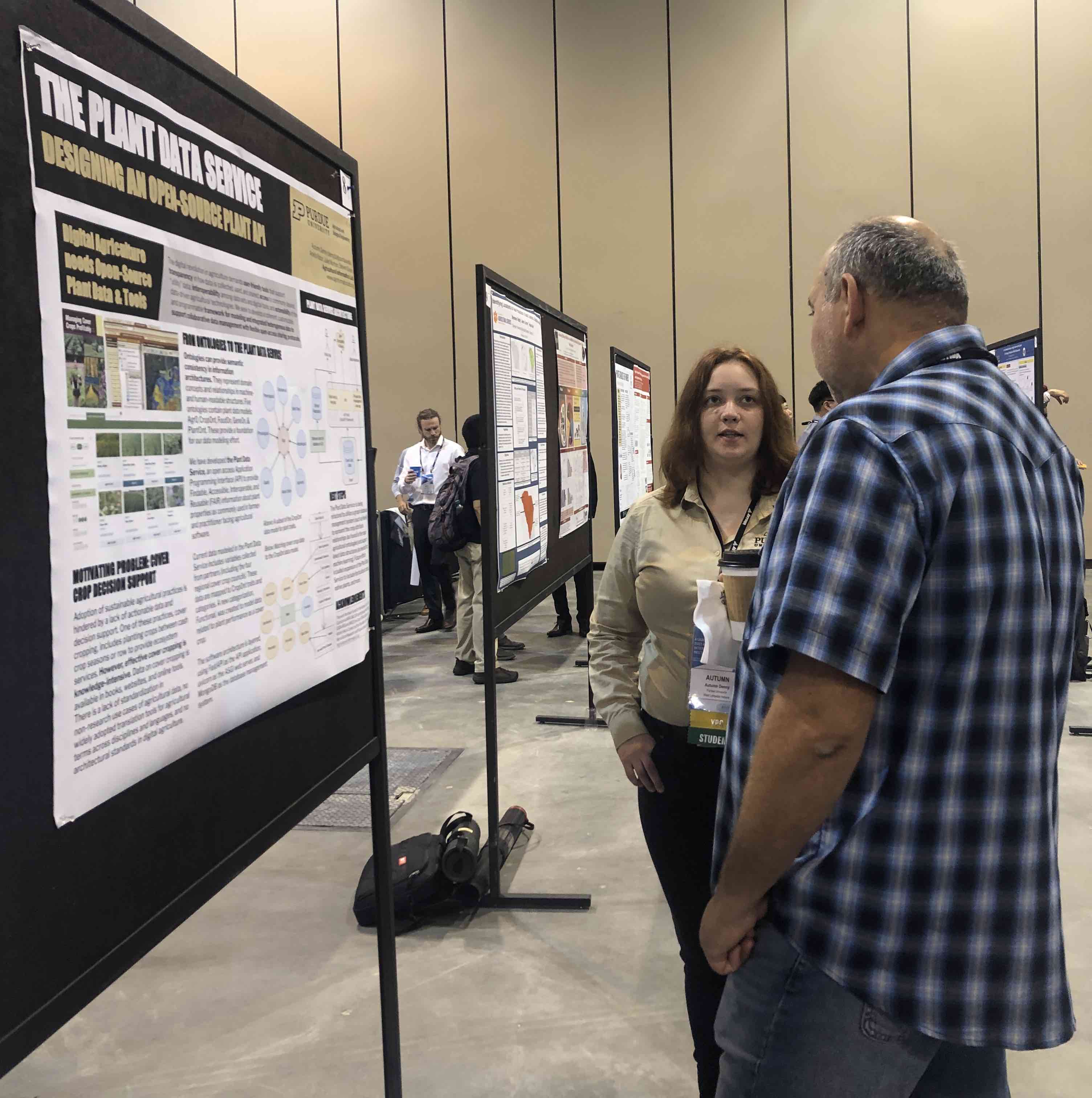 Developing an open-source plant data API that integrates diverse plant data as commonly desired across the open ag tech ecosystem. Data modeling knowledge graphs.
Developing an open-source plant data API that integrates diverse plant data as commonly desired across the open ag tech ecosystem. Data modeling knowledge graphs.
Submit an Inquiry
Interested in developing tools or doing research with the Ag Informatics Lab?

